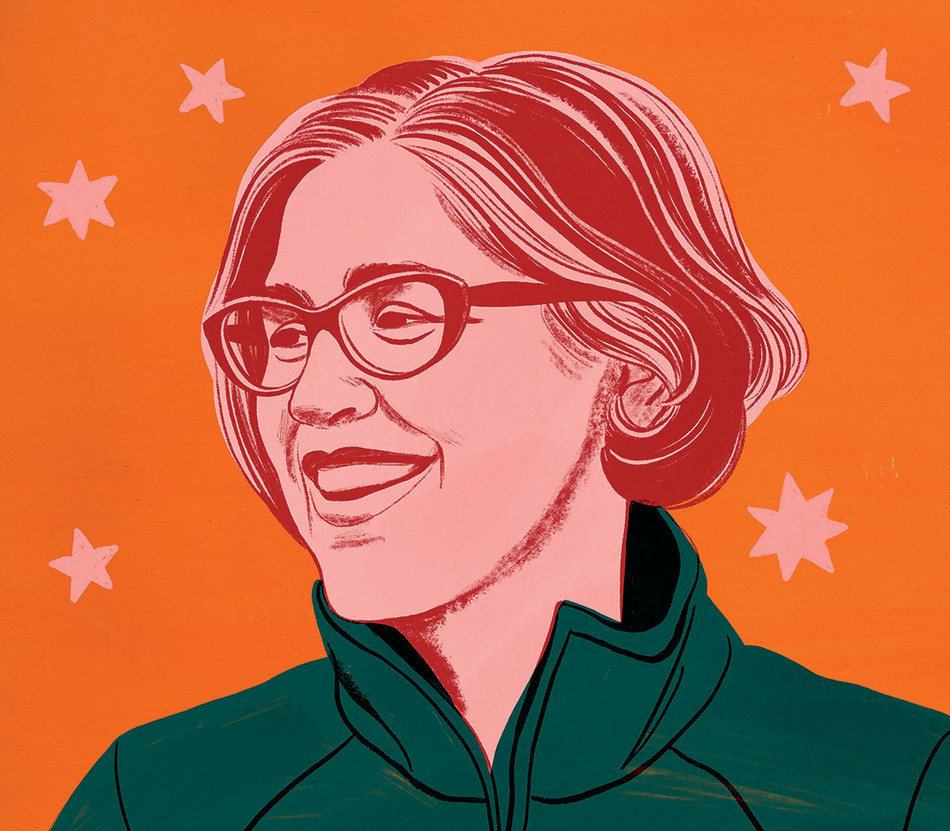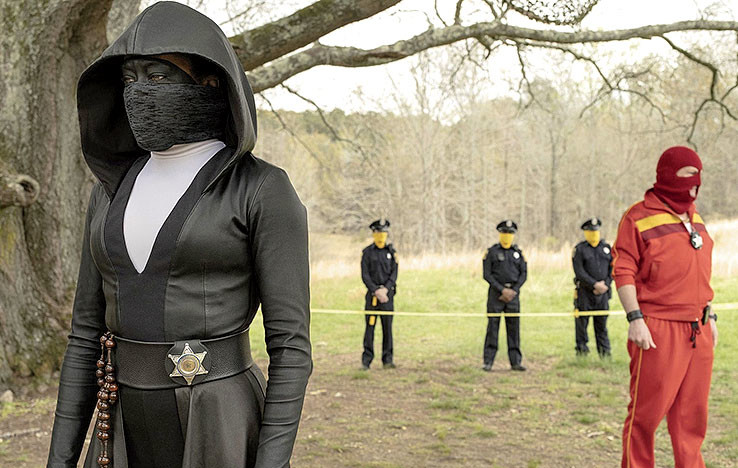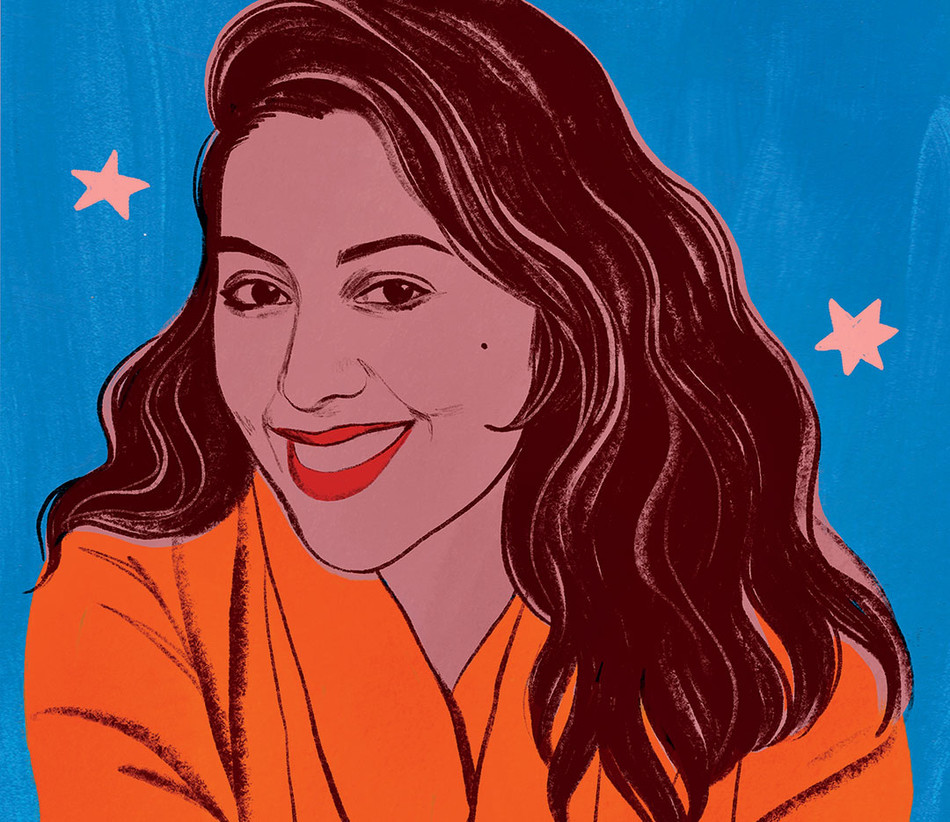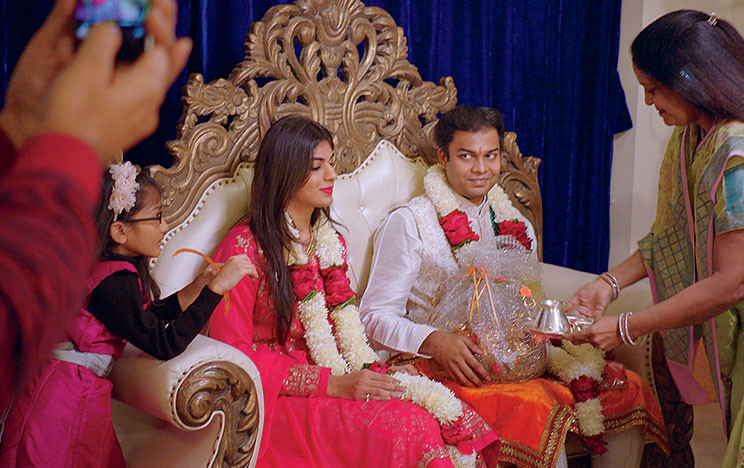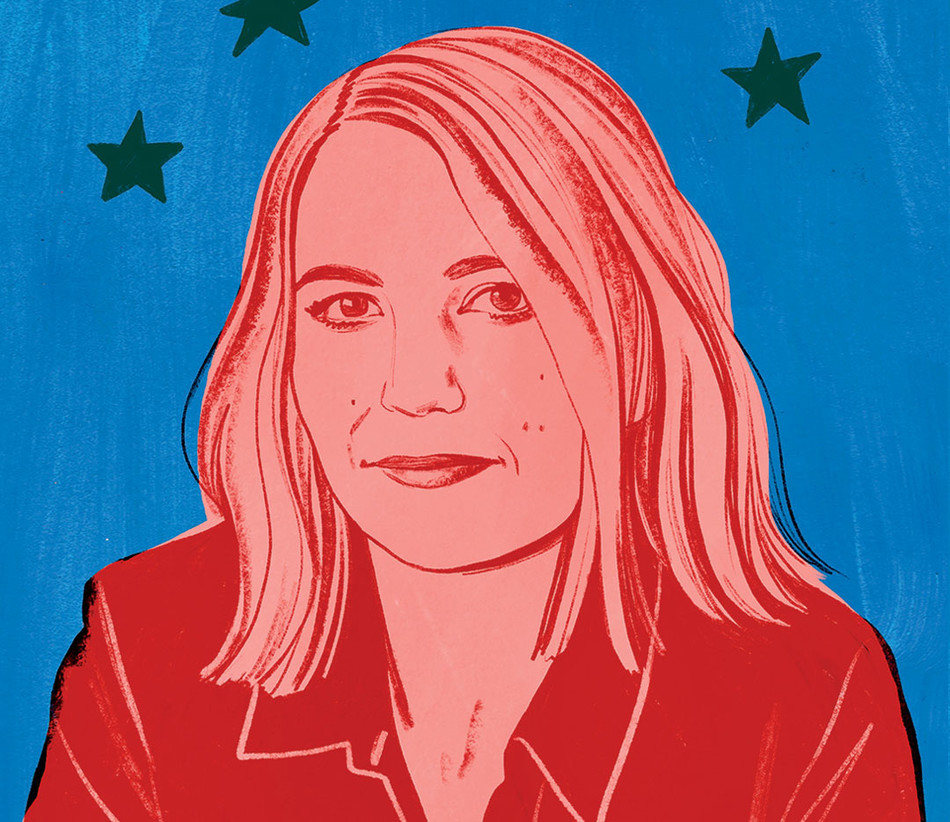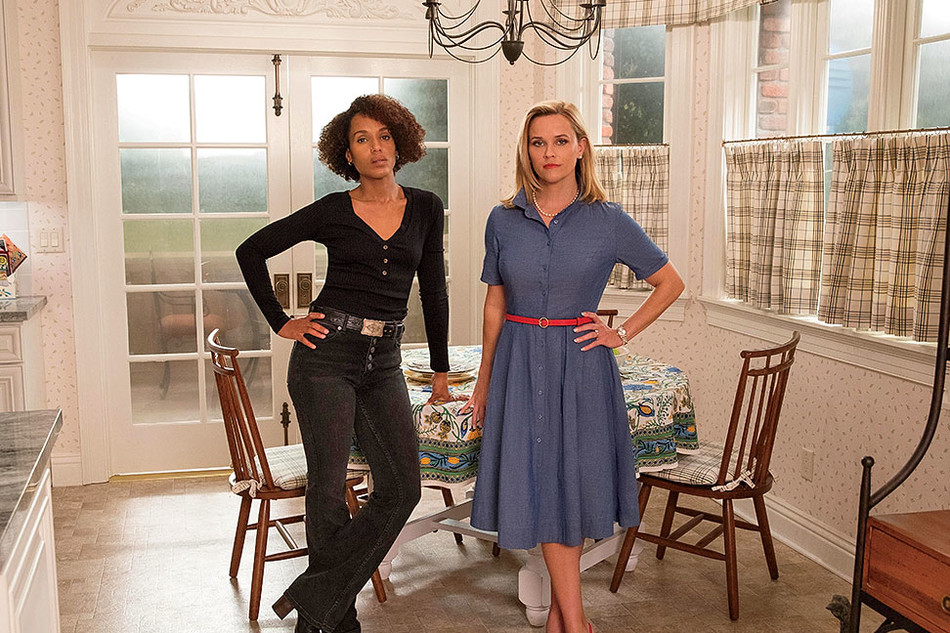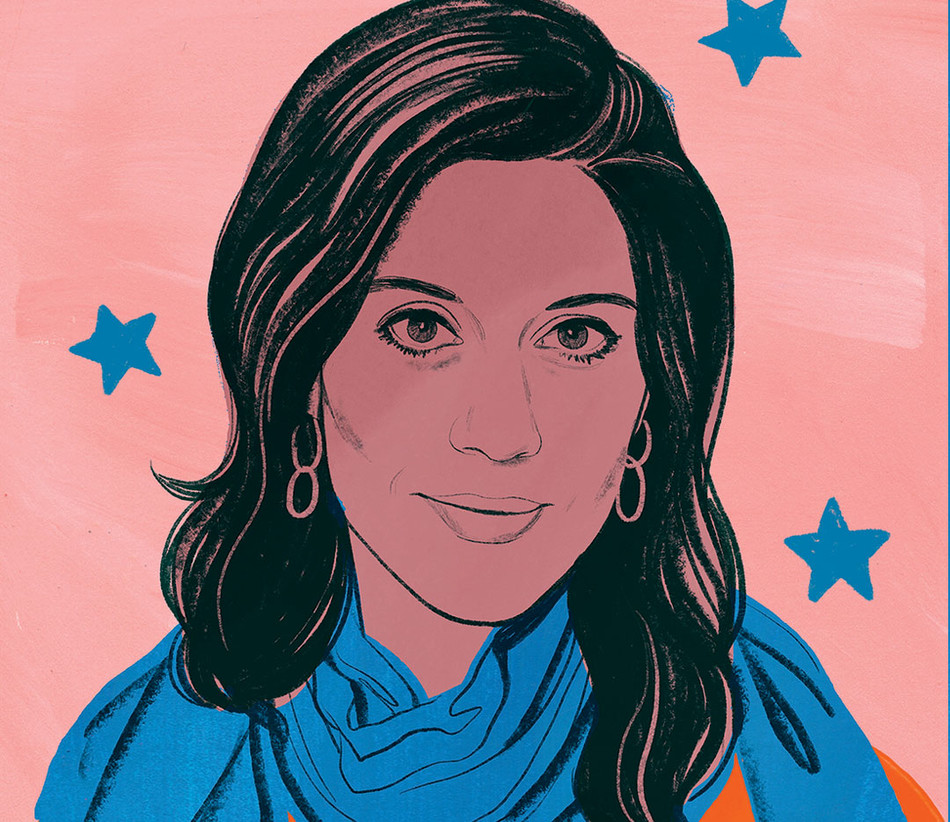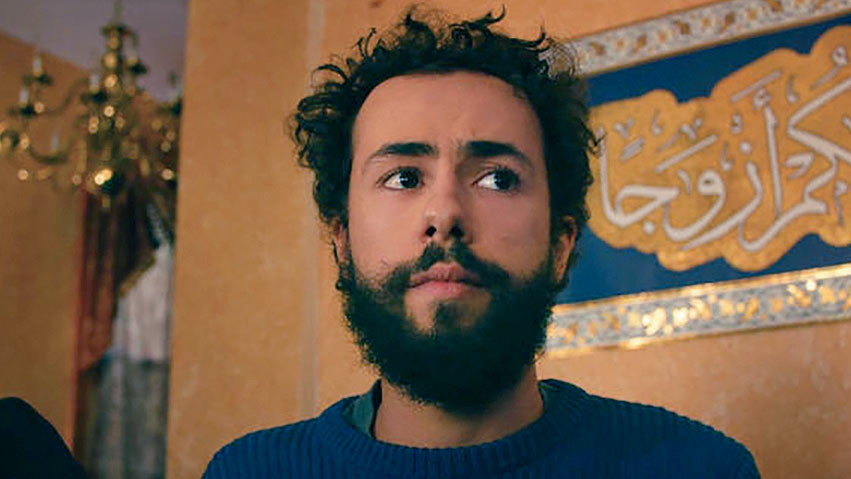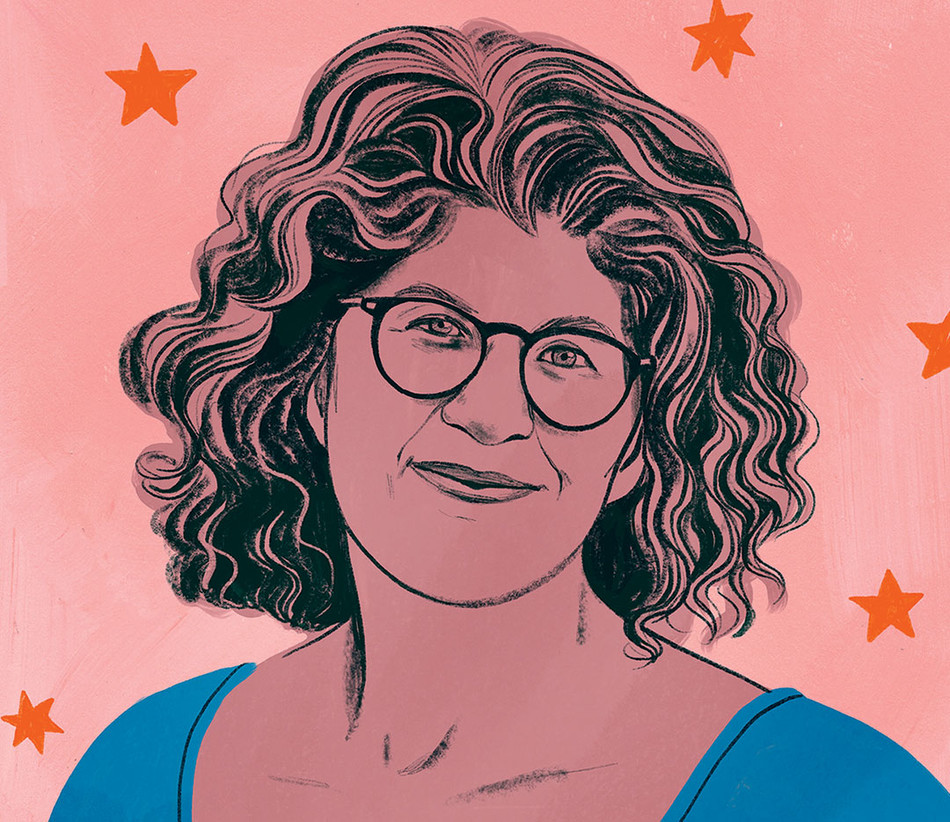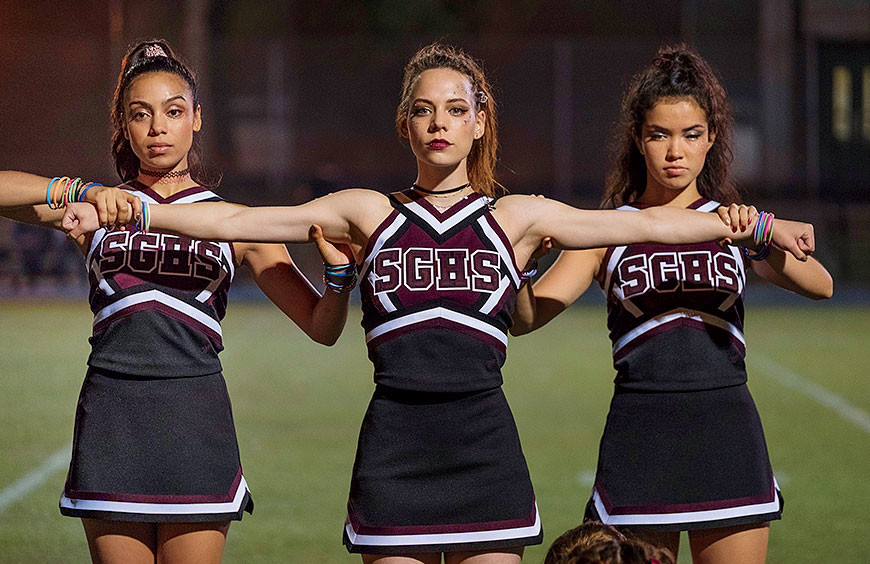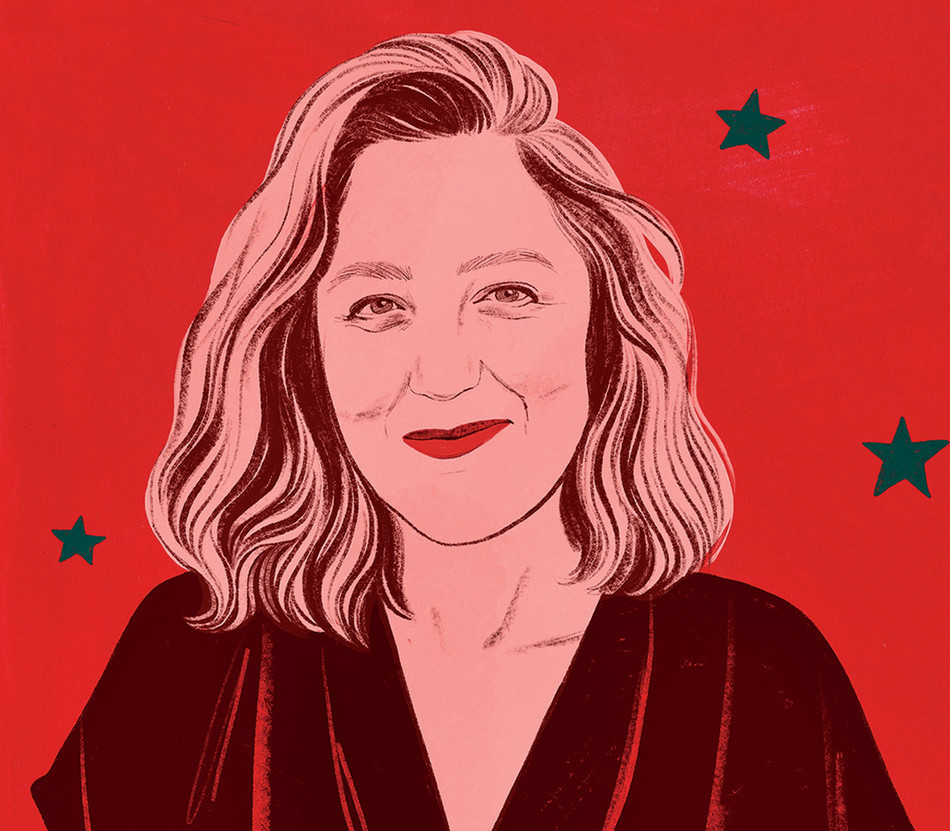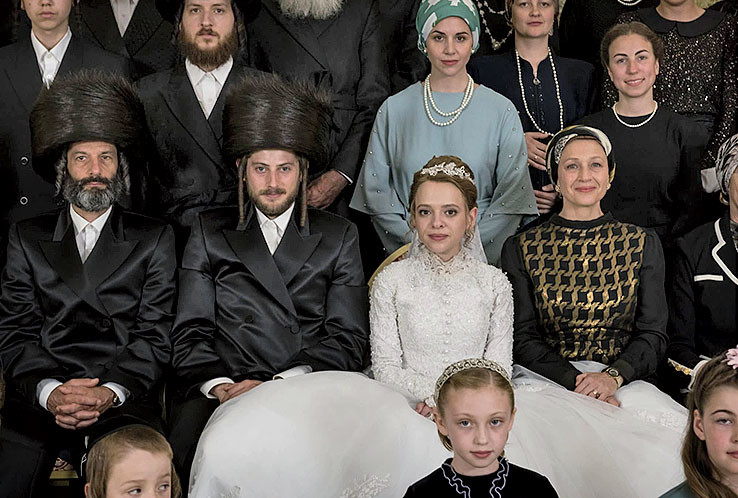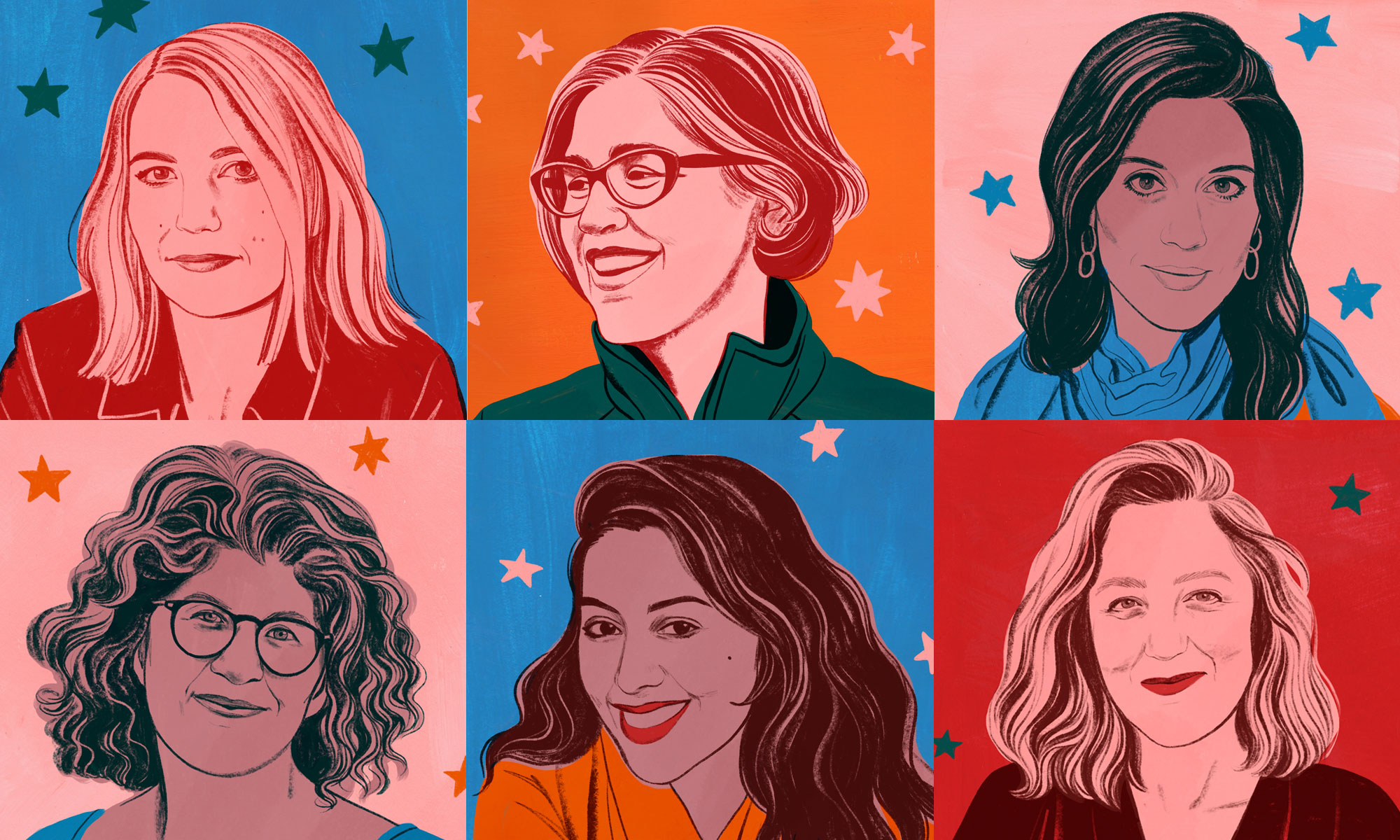
Nicole Kassell
Recent claim to fame: Watchmen
Nicole Kassell ’94CC realized she was going to be a filmmaker during the first week of her freshman year at Columbia, when a classmate came into her dorm room and showed her a short film he had made.
“It was a total lightning-strike moment,” says Kassell, now an accomplished director and producer who has worked on numerous television series, including Watchmen, The Leftovers, The Killing, and The Americans. “I knew I wanted to do that.”
After studying art history at Columbia and film production at NYU, Kassell launched her career with The Woodsman, a daring indie feature starring Kevin Bacon as a convicted child molester trying to reenter society. The 2004 film generated buzz at the Sundance Film Festival, and Kassell began receiving invitations to direct episodes of crime and drama series like Cold Case and The Closer. At the time, there were fewer women filmmakers in the industry. “When I started, I was often the only female director on a series for that season. That’s rarely the case now,” she says. “Producers and writers are putting a lot more effort into making sure people of different genders and ethnicities are behind the camera.”
Kassell, who won a 2020 Emmy for outstanding limited series as an executive producer of Watchmen, says she is “drawn to stories that leave people thinking and growing.” She refuses to be boxed in by any one style or genre but admits she gravitates toward weighty subjects. “I don’t want to work on things that are pure eye candy or escapism,” she says.
Watchmen, which premiered on HBO in fall 2019, is a loose adaptation of the 1986–87 comic-book series of the same name. Set in an alternate reality, the limited series stars Regina King as a police detective pursuing a white-supremacist group in Oklahoma. (Naturally, there are supernatural powers involved.) The pilot, which Kassell directed along with two other episodes, depicts the Tulsa race massacre of 1921, when a white mob killed as many as three hundred people and destroyed the thriving neighborhood of Greenwood, also known as Black Wall Street. “It’s a history that so many of us haven’t been taught,” says Kassell, who acknowledges that Watchmen was a direct response to the 2016 election and the Black Lives Matter movement.
Kassell is currently working on a feature film called Silver Seas, about a team of journalists (including Robin McDowell ’93JRN) who won a 2016 Pulitzer Prize for documenting slave labor in the Southeast Asian fishing industry. She is also slated to direct a Wizard of Oz reboot and is serving as lead director and executive producer of The Baby, an upcoming series for HBO. “It’s a comedy-horror show about a woman struggling over the question of whether or not to have a child, and about what the presence of a baby can do to friendships and families,” she explains. “I’m not just the mistress of misery — I like pushing my boundaries as an artist.”
Smriti Mundhra
Recent claim to fame: Indian Matchmaking
Indian Matchmaking is a different kind of dating show. While the 2020 Netflix reality series covers its fair share of awkward dates and heartaches, there are no villas in paradise or singles in skimpy swimwear. Instead, the series follows Indian and Indian-American professionals who seek the help of matchmaker Sima Taparia and grapple with reconciling centuries-old Indian customs with today’s world.
For Smriti Mundhra ’09SOA, the creator and executive producer, this topic is deeply personal. An Indian-American documentary filmmaker from Los Angeles, Mundhra first conceived the series more than a decade ago, when, she says, at the urging of her “mother and aunties,” she hired Taparia as her own matchmaker. Mundhra didn’t find her perfect match through Taparia (she ultimately met her husband, screenwriter Christian Magalhaes ’10SOA, at Columbia), but she did find rich material for a reality TV show. In 2009, she began pitching the idea to producers but was told the topic lacked mainstream appeal.
Mundhra tabled the project and went on to feature Taparia in A Suitable Girl, a 2017 documentary about three young women in India dealing with the pressures of engagement and marriage. The film, which Mundhra wrote and directed with Sarita Khurana ’11SOA, won the Albert Maysles New Documentary Director Award at the Tribeca Film Festival and placed Mundhra in a better position to pitch her series again. This time, she turned to Netflix, where she found an Indian-American executive who loved the idea.
Indian Matchmaking proved popular but divisive. Many viewers took to social media to complain about the show’s thinly veiled display of caste culture (the participants are mostly wealthy, and some request fair-skinned partners). But for Mundhra, the criticism was welcome. “South Asians — a population of almost two billion people — are starved for true and diverse representation,” she says. “I think the fact that it sparked conversation and got people thinking about colorism and sexism and casteism was ultimately a benefit.”
As a documentarian, Mundhra strives to tell relatable stories from the viewpoints of people typically left out of mainstream entertainment. In 2019, she and former Columbia classmate Sami Khan ’09SOA released St. Louis Superman, an Oscar-nominated short documentary about Bruce Franks Jr., a Black rapper and activist who won election to the Missouri House of Representatives in 2016. This year, she has been working on a docuseries about Bollywood, a feature documentary about the Indian caste system, and a short film about the Los Angeles housing crisis, among other projects.
Mundhra credits the documentary genre and its rise in popularity for providing her with an entrée into directing. “No one was giving me money to direct a scripted feature film,” she says. “As a woman of color, I was always told my stories were too niche. I could never crack that bubble even though I was an accomplished producer. Independent documentaries can be made with far fewer resources.”
She acknowledges that Hollywood has grown more inclusive in recent years but says it has a long way to go. “I think studios are following the money and realizing there’s success to be had by elevating new voices,” says Mundhra. “However, increased equality is ultimately going to come down to the will of women and people of color to amplify others who have been marginalized and an industry recognition that it’s bad business to leave us out of the conversation.”
Amy Talkington
Recent claim to fame: Little Fires Everywhere
Amy Talkington ’93BC, ’99SOA discovered her passion for film at Barnard, where, as an art-history major, she was exposed to the work of Fellini, Antonioni, and other arthouse auteurs. “I realized film was where I could bring together my love of painting, music, and writing,” she says.
During and after college, Talkington, who is originally from Dallas, worked as a music journalist before enrolling at Columbia for an MFA in film production. Her 1998 thesis short, Second Skin, won festival awards and became her ticket to Hollywood. Talkington then went on to write and direct the 2006 indie feature The Night of the White Pants.
But her directing career hit a wall, and Talkington turned her efforts toward writing. She penned numerous screenplays for Hollywood studios and published a young-adult novel, Liv, Forever, in 2014, but most of her film scripts never made it to the screen. “I grew frustrated at the glacial pace of development and the constant rewriting,” she says. As the writer of Valley Girl, a 2020 jukebox musical inspired by the 1983 movie of the same name, Talkington says she was fortunate to be included in the production phase, because “with studio films, writers are lucky if they’re even invited to visit the set.”
But television is a different beast. “The writer has more control and power,” explains Talkington, whose TV career took off when she joined the team of Little Fires Everywhere as a writer and co–executive producer. “It’s more like theater in that sense, where the writer is involved in every step of the process.”
Little Fires Everywhere, which premiered on Hulu in 2020, is adapted from a 2017 novel by Celeste Ng and stars Reese Witherspoon and Kerry Washington, both of whom helped spearhead the project as executive producers. Created by Liz Tigelaar, the Emmy-nominated series about two headstrong mothers who clash over their ferocious love for their children appealed to Talkington on many levels. “I love stories about underdogs and outcasts, and about the complicatedness of being a woman — the boxes we’re put in, the gendered roles and expectations,” she says.
After taking what she considers an “unconventional” path to television, Talkington feels she’s finally gotten to the place where she’s always wanted to end up. She has several new TV projects in the works, including DIX, a coming-of-age series based on her experiences as an “absurdly young music journalist in the late ’80s and early ’90s.”
Talkington is confident that her projects have a better chance of seeing the light of day now. “Hollywood has shifted drastically in the last few years,” she says. “By no means are we near parity, but the industry feels hungrier for work from women.” Plus, streaming platforms have opened doors. “The types of films that I used to write — mid-budget, women-centered dramedies — barely get made by movie studios anymore,” says Talkington. “I’m grateful that new opportunities have emerged in TV to fill those gaps. What I love about streaming is the possibility to tell smaller, weirder, edgier, more unexpected, and more specific stories.”
Cherien Dabis
Recent claim to fame: Ramy
Growing up Arab-American in a small town in Ohio, Cherien Dabis ’04SOA says she was always “keenly aware that there was virtually no authentic representation of Arabs on TV.” Media portrayals seemed limited to archetypes like victimized woman or violent barbarian. “I became obsessed with wanting to tell our stories,” she says. “It was shocking to see that people thought of us as the enemy.”
Like many Arabs living in the US, Dabis, who comes from a Palestinian-Jordanian family, has experienced the ugliness of racism and xenophobia. “During the Gulf War, we got death threats in our mailbox,” she says. “My dad, a doctor, lost a lot of his patients, and the Secret Service came to my high school to investigate a rumor that my sister had apparently threatened to kill the president.”
As a filmmaker, Dabis is on a mission to shift perceptions and undermine dangerous stereotypes. She has written and directed two feature films, Amreeka and May in the Summer, both of which portray Arabs in everyday, relatable scenarios. (Dabis herself starred in the latter movie.) She has also built an impressive career in TV and recently served as a director and co–executive producer on Ramy, a comedy about a young Egyptian-Muslim man grappling with religious piety and sexual freedom in contemporary New Jersey.
The show, which premiered on Hulu in 2019, has been lauded by critics and audiences for its nuanced portrayal of Arabs. Dabis recognizes the Emmy-nominated series as an important milestone for her community but cautions that “giving us a seat at the table doesn’t mean one show. It means a number of shows as well as characters on shows that aren’t just about Arabs.” A major obstacle, Dabis explains, is Hollywood’s vague understanding of the potential of the Arab market. “Middle Eastern people are not counted in the US census,” she says. “We either check ‘other’ or ‘white.’ There are no proper numbers on how many of us there are, which makes it harder to present an argument that we should be taken seriously as viewers.”
This year, Dabis has been occupied with several new projects. She is set to direct The Fighting Shirley Chisholm, a feature film about the trailblazing Black congresswoman’s campaign for president in 1972, as well as episodes of the upcoming Hulu comedy series Only Murders in the Building.
Dabis, who has taught several directing courses at Columbia since graduating in 2004, says she is grateful that streaming platforms have created more opportunities for women filmmakers and for new voices. But her optimism is deeply cautious. “I want to make sure industry leaders are being held accountable for actually hiring women and people of color to create shows and tell our own stories, not sticking us in roles where we don’t have power and then patting themselves on the back,” she says. Lately, Dabis has seized upon the demand for diverse content by pitching her own series, Acceptable Women, which is inspired by her family. “It’s been in the pipeline for a while,” she says. “Now is the time.”
Gina Fattore
Recent claim to fame: Dare Me
Writer and producer Gina Fattore ’90CC has been in the TV business since 1995, the year a former boss offered her what would prove to be a life-changing opportunity. “She called me and said, ‘My son is going to make a show with Mike Judge, the guy who created Beavis and Butt-Head, and I think you should move to LA and work for him,’” recalls Fattore, who at the time was a newspaper editor in Chicago. “So I packed my bags, moved to LA, and became the assistant to Greg Daniels.”
Daniels’s show was the animated sitcom King of the Hill, and Fattore would go on to work on numerous other hit series, including teen classics (Dawson’s Creek, Gilmore Girls), arty comedies (Californication, Better Things), and respected dramas (Parenthood, Masters of Sex). Most recently, she co-developed, cowrote, and executive-produced Dare Me, a crime drama about high-school cheerleaders that aired on the USA Network in late 2019 and early 2020 and became a top series on Netflix this year.
Fattore says that becoming a showrunner (“the boss,” as she puts it) for Dare Me was a crucial career milestone. “My generation of female TV writers hit the glass ceiling … We’d privately joke about how women and people of color rarely made that leap to showrunner.” But after twenty-six years in the business, Fattore can at last see progress. “I don’t know if it was the #MeToo movement or what, but there are suddenly more opportunities,” she says.
For Fattore, who likes to joke that working on the teen soap opera Dawson’s Creek from 1999 to 2003 was her version of film school (she studied English at Columbia), Dare Me was a natural fit. “I love coming-of-age stories, because they’re about identity and discovering who you are,” she says. “I think everyone is still in touch with some version of their teenage selves.” During the pandemic, as more people have taken to binge-watching series and revisiting old favorites, Fattore says that fans of Dawson’s Creek and Gilmore Girls have reached out. “It’s a wonderful experience having people tell me what those shows meant to them when they were teenagers,” she says.
Since Dare Me finished production, Fattore has been busy with several projects, including her first novel, The Spinster Diaries, which was published last year. The “unromantic comedy,” which follows a TV writer navigating work, a lackluster love life, and the diagnosis of a benign brain tumor, is based on her real life.
As an industry veteran who remembers when twenty-two-episode seasons were the norm, Fattore sees positives and negatives to today’s streaming model. “Seasons are shorter now and often driven by one writer,” she says. “So there’s less opportunity for people to come in and learn while doing,” as she did. She feels that many newcomers, lacking experience and production skills, are thrown into the deep end. But, Fattore adds, “we have so many amazing new shows and amazing new voices. Who would trade that away?”
Anna Winger
Recent claim to fame: Unorthodox
Before the streaming era, Unorthodox would likely have been released as an arthouse film. With dialogue mostly in Yiddish, the story of a young woman who leaves a claustrophobic marriage in the Satmar Hasidic Jewish community in Brooklyn to find freedom in Berlin might have attracted some award nominations and a few eyeballs. But the four-part limited series followed a different path when it premiered on Netflix in the spring of 2020. Not only did the show win the praise of critics and an Emmy for direction; it was also a global hit.
“People all over the world responded very strongly,” says showrunner Anna Winger ’93CC, who co-created, cowrote, and executive-produced Unorthodox through her production company, Studio Airlift. “If we had made it as a feature film or for network TV, it would have reached a much smaller audience. Streaming is more democratic because it provides access beyond arthouse theaters in major cities.”
Winger, who grew up in Massachusetts but has lived in Berlin for almost two decades, graduated from Columbia with a degree in film studies. She traveled the world as a photographer before settling in Germany, where she took up writing. After publishing her first novel, This Must Be the Place, in 2008, Winger shifted to screenwriting. “I realized I was well suited to TV because of the serial-storytelling aspect, which is like writing a novel, and showrunning, which is similar to photography,” she says. With her husband, television producer Jörg Winger, she co-created Deutschland 83, 86, and 89, a 2015–20 series about an East German spy.
Unorthodox was inspired by a 2012 memoir by Winger’s friend and fellow Berliner Deborah Feldman. The city of Berlin, with its complex history and modern multicultural sensibility, plays a leading role in the drama. “It’s an interesting experience coming here as a Jew, looking back not just at what happened during World War II but also at the deeper origins of Jewish culture here,” says Winger. “The city feels familiar in an unexpected way.”
Winger’s upcoming projects, which are also shot in the languages of their settings, span the globe. She is currently writing a series set in 1940 during the refugee crisis in Marseille, when American journalist Varian Fry helped thousands of Europeans, including many famous artists and intellectuals, escape the Nazis. Her production company is also working on a project set in South Africa and the UK during the struggle against apartheid. “Frankly, the COVID period has allowed a lot of time to write,” she says.
While Winger shares the concerns of many filmmakers about the future of movies and cinemas in the post-pandemic streaming era, she sees a wealth of opportunity in TV. “The shape and form of television has been defined for so long by networks, commercial breaks, and formatted time slots,” she says. “Streaming makes everything more fluid and flexible. What is a movie? What is a series? What is a limited series? The new model opens up more possibilities for how we tell stories. Creatively, it’s inspiring.”
This article appears in the Spring/Summer 2021 print edition of Columbia Magazine with the title "The New Televisionaries."
